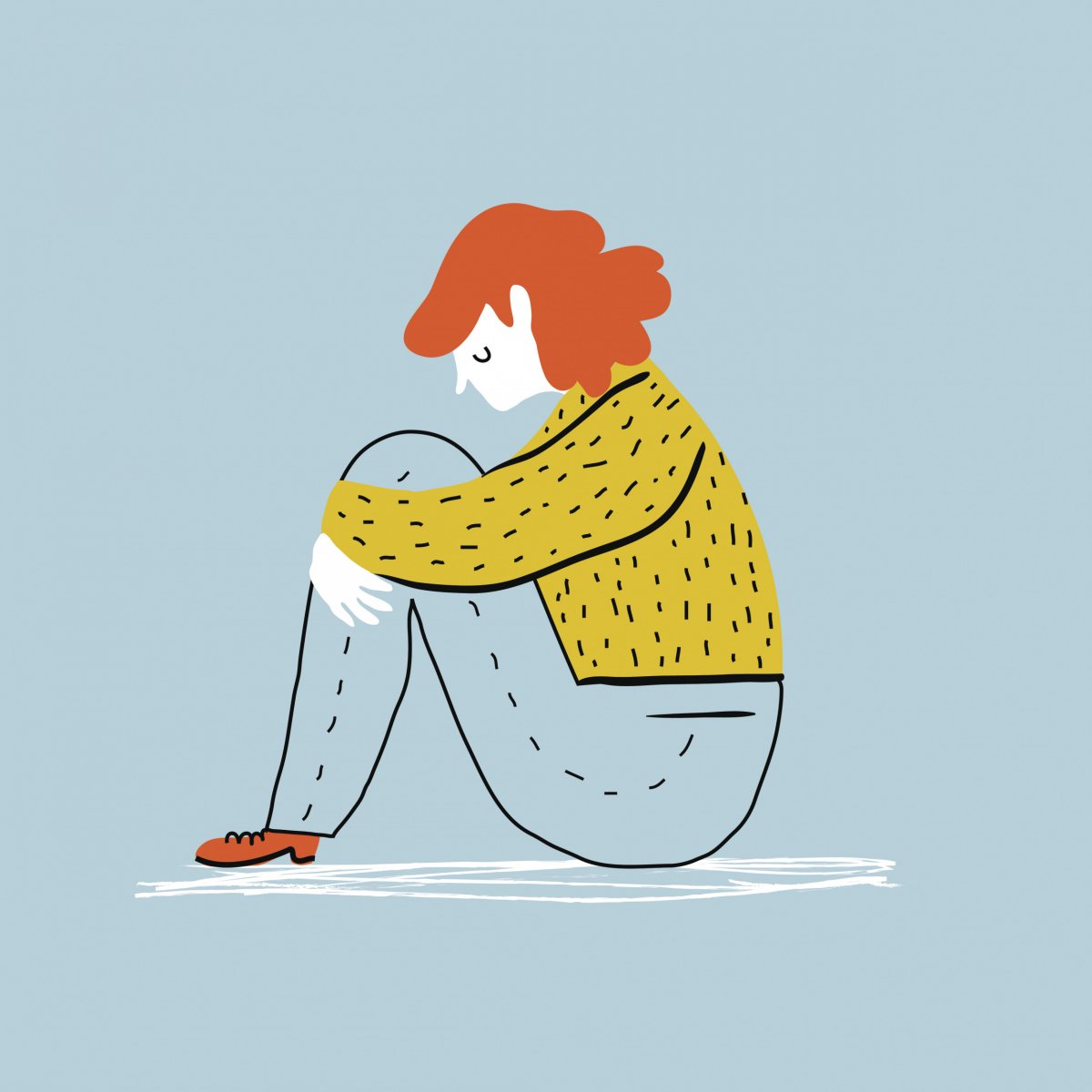I think everyone has probably had one toxic relationship. Whether that's in the workplace, in a romantic relationship, or with family members. I started to see them in my practice as a psychotherapist because I initially specialized in patients with ADHD and anxiety, and I noticed more people asking what they were doing wrong in their relationships. Once they started disclosing more information about what they were experiencing, it sounded like emotional abuse.
Following the #MeToo movement, I had more people coming in and disclosing their own experiences of abuse, particularly in the workplace. More attention is paid to emotional abuse as an "invisible" form of abuse.
While statistics show that more women are victims of domestic violence and toxic relationships, men are far more likely to under-report. I would say that the demographics of my clients in any kind of toxic relationship are 60 percent women and 40 percent men. In the beginning, it was 80 percent women and 20 percent men. But as people have become more open, especially since details have emerged from the Johnny Depp and Amber Heard lawsuits, more and more men have contacted me saying they feel like they have been victims of a toxic relationship with domestic abuse.
A toxic relationship is any relationship between people where there is an aspect of control and coercion. It can be in the workplace with a co-worker or employer, it can be in a family of origin—the family you grew up with—it could be friends or neighbors, or it can be in a romantic relationship. After 20 years as a psychotherapist, these are some red flags I have seen in toxic relationships.
Pushing too quickly for emotional intimacy, or idealization
One of the first phases you may experience in toxic relationships is the "idealization phase." Someone will place you on a pedestal; they will think you are "the one" and push for a commitment right away. I've worked with clients where on a first date, someone has said to them that they should move in together and that my client is the best thing ever. The person would ask them intrusive questions. Some of my clients had a "gut feeling" that continuing contact with this person was not in their best interest and they left the date immediately.

Trauma dumping
I see this happen with clients when the abuser will give details about traumas they have experienced themselves at the very beginning. They are trying to build up false emotional intimacy. I have had clients who have been on first dates with someone, and their date started speaking about the trauma they had experienced before they had even sat down at the restaurant. One of my clients felt very uncomfortable and felt that it would be unacceptable for him to interrupt his date because she was crying. He also thought that the way she had addressed it appeared like there was a goal in sharing it. It seemed inconsistent, and it got very confusing. I usually tell clients that if something seems really confusing, it's not you. Now, he realizes that this was her way to try and get him to disclose his trauma. As time went on in the relationship, he started talking a bit about his trauma and she used it as ammunition against him. If he said behavior of hers crossed a boundary and was not OK with him, she would tell him that he was being sensitive because of this trauma.
Not taking responsibility for behavior
I have seen toxic relationships where an abusive person will blame their partner for setting healthy boundaries or being upset about unacceptable behavior. I will sometimes see someone with narcissistic personality disorder come in with their partner because they want their partner to be "fixed." Covert narcissists are very self-effacing and tend to portray themselves as having good morals. They will come in for couples therapy and appear to be functioning OK, except when I ask them what their contribution is to the difficulties in the relationship. They will sometimes get really irate or very passive-aggressive.
Trauma bonding
This is a cycle people go through. There will be an abusive event and then some reconciliation. During the abusive event, adrenaline and cortisol are released into your system, and during the resolution or remorse phase, there can be a release of dopamine and oxytocin. In fact, abusers will randomly compliment you or be nice to you even during an abuse phase, which confuses the victim.
I have a female client who told me that her partner was nice to her 98 percent of the time. But when she talked about the two percent, it was very volatile. She never knew what would set him off. She was always walking on eggshells because she knew he was going to explode, but she didn't know when. It could be anything from not liking the dinner she cooked to accusing her of cheating. In reality, he was actually the one cheating. I always tell clients that if the person is abusive two percent of the time, it's still an abusive relationship.
There is a difference between difficulties in communication and abuse and toxicity. Every relationship is going to have periods where people disagree on issues. I tell clients that in a healthy relationship, you address those issues, talk through them, and you agree to disagree or come up with a solution together. It's you and your partner against the issue. In a toxic type of relationship, the abuser will pit the victim against them, and even use an "invisible army" to back themselves, saying things like: "Everyone knows you're crazy."

Bad mouthing others immediately
I have had clients interviewing for a role in a company with a team of three of four interviewers. In one case, one of the interviewers, "Jim," stepped out of the room for something and another interviewer immediately started talking to my client about how Jim was "no good" and shouldn't be on the team. That's a huge red flag; when you have someone who will immediately criticize another person to you when they don't know you. This can also be a sign of "splitting," where a narcissistic individual sees others as all good or bad, and there is no in-between. If you work at that kind of company, you may notice that people are either idealized or devalued. In my client's case, the same person who had bad-mouthed their colleague started saying my client was the best person they had ever interviewed.
Sometimes when people talk about the details of toxic relationships, they can feel really uncomfortable sharing information—for example, there being a tracker on their car—because they fear they will look delusional. That's why it can be very isolating. Unless you have experienced a relationship like this, it's hard to understand how someone could behave in this way, especially if you feel that people are generally good at heart.
If you feel you might be in a toxic relationship, you may feel like you're on your own or that no one will believe you. So it can be really helpful to talk to a trained mental health professional who can act as a neutral third party. If you feel you are in danger, physically or otherwise, it's important to contact emergency services, law enforcement, or your local crisis center.
And, it's important to maintain contact with the healthy people in your life. Notice if you have been isolated from loved ones and family and make a point to reach out to them. I also let clients know that if they have to co-parent with someone who is abusive, there are attorneys who will see clients pro-bono.
Although the survivor is never the one responsible for experiencing abusive behavior, when people realize they are having issues with toxic relationships and talk to me as a psychotherapist, we are able to help them work through what may have caused them to enter into the relationship. They can then go on to lead happy, productive lives with healthy relationships.
Stephanie Sarkis PhD is a psychotherapist and the author of How To Heal From Toxic Relationships: Ten Essential Steps to Recover from Gaslighting, Narcissism, and Emotional Abuse and Gaslighting. You can find out more at stephaniesarkis.com.
All views expressed in this article are the author's own.
As told to Jenny Haward.
Uncommon Knowledge
Newsweek is committed to challenging conventional wisdom and finding connections in the search for common ground.
Newsweek is committed to challenging conventional wisdom and finding connections in the search for common ground.
About the writer
To read how Newsweek uses AI as a newsroom tool, Click here.








